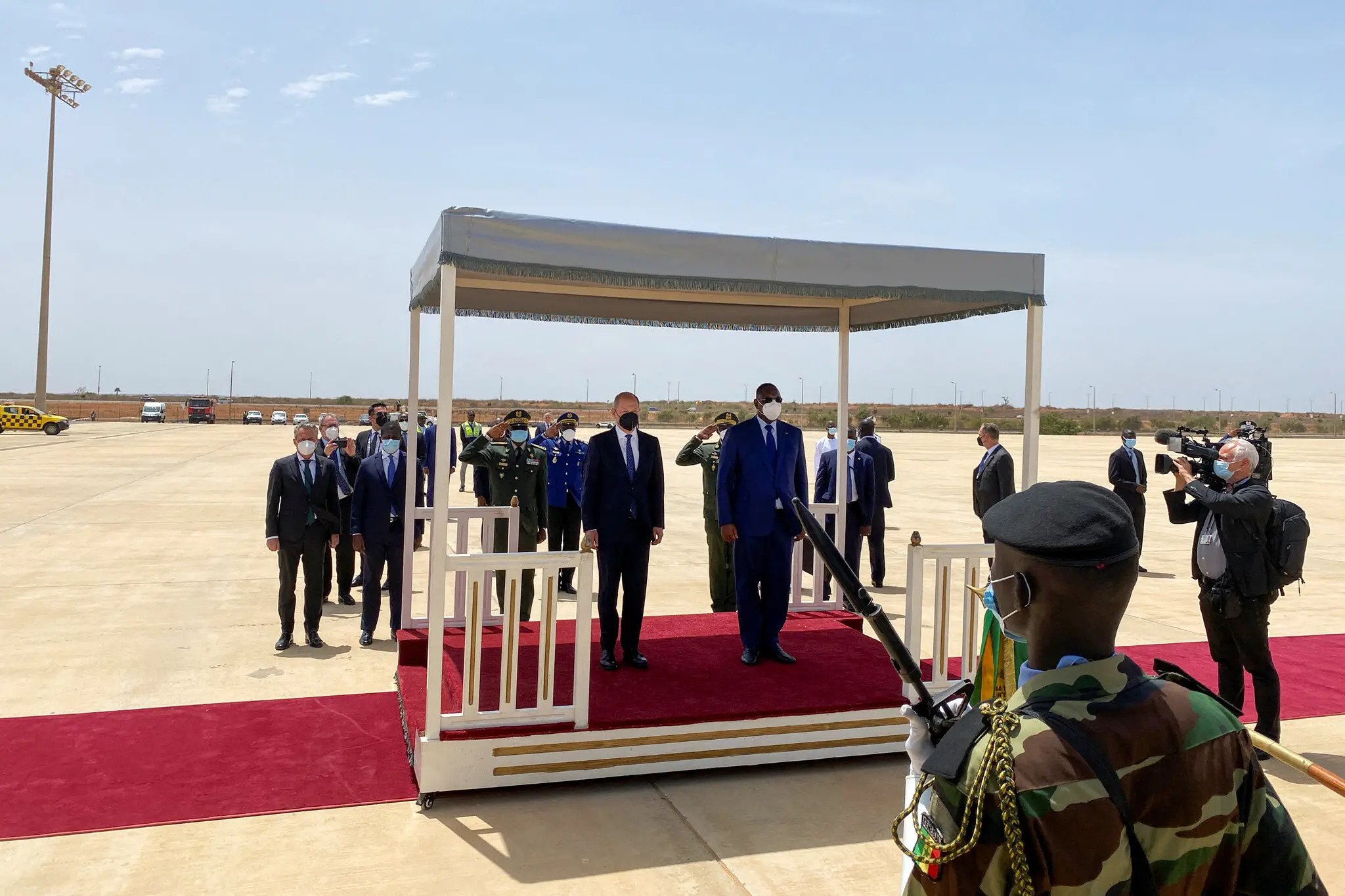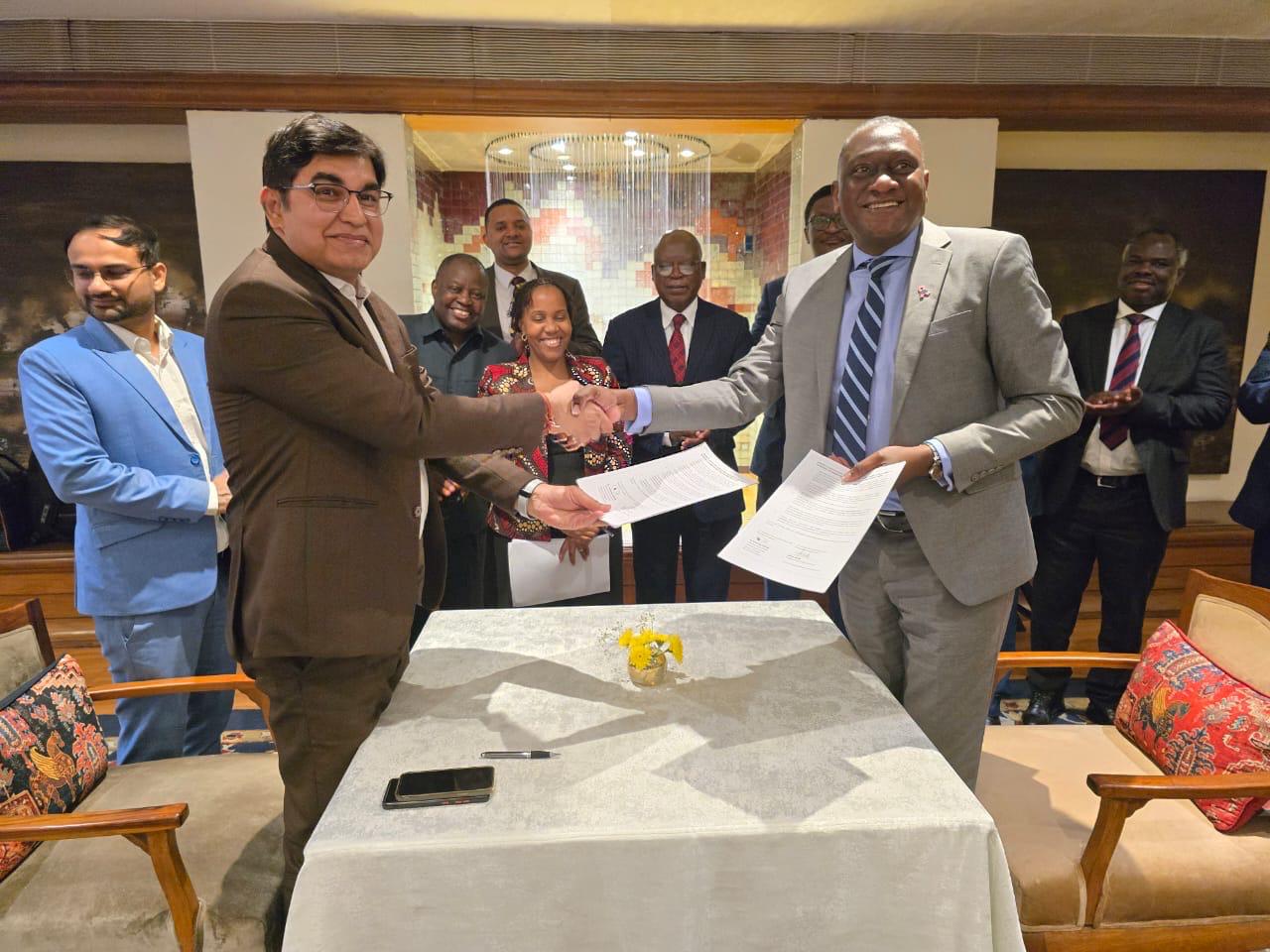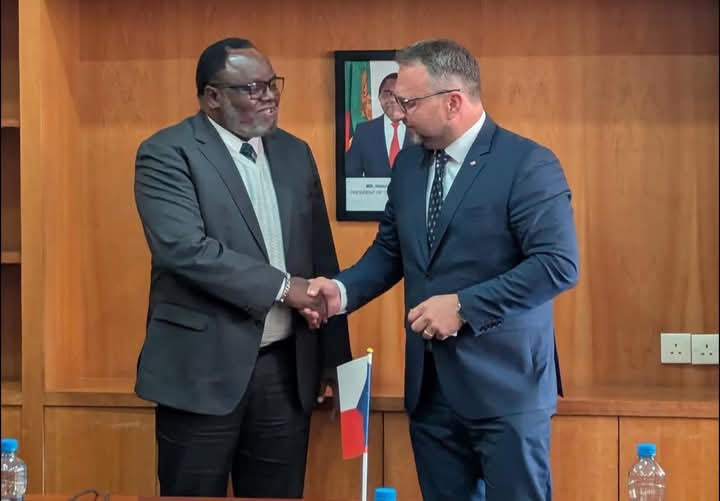(New York Times)-European leaders have been converging on Africa’s capital cities, eager to find alternatives to Russian natural gas — sparking hope among their counterparts in Africa that the invasion of Ukraine may tilt the scales in the continent’s unequal relationship with Europe, attracting a new wave of gas investments despite pressure to pivot to renewables.
In September, Poland’s president arrived in Senegal in pursuit of gas deals. In May, the German chancellor, Olaf Scholz, came seeking the same thing and in recent weeks told the German Parliament that Europe’s energy crisis necessitated working “together with countries where there is the possibility of developing new gas fields,” while keeping pledges to reduce greenhouse gas emissions.
“With the war, it’s a U-turn,” said Mamadou Fall Kane, energy adviser to the president of Senegal. “The narrative has changed.”
The flurry of European overtures has led to new or fast-tracked energy projects, with talk of more to come.
Italian government ministers have accompanied executives from Eni, one of the largest energy companies in the world, to Algeria, Angola and the Republic of Congo as well as to Mozambique, where a natural-gas terminal operated by Eni is expected to begin supplying gas to Europe in a matter of days. Eni is now discussing an additional terminal with the Mozambican government.
And in recent weeks, officials from the Democratic Republic of Congo have embarked on an international marketing tour to draw the attention of U.S. and European companies to new oil and gas blocks they have put up for auction. Climate activists have denounced the auction because it includes oil blocks that overlap a gorilla sanctuary as well as fragile peatlands that store immense amounts of carbon dioxide, a planet-warming greenhouse gas.

In interviews, African leaders lamented that it had taken a war, thousands of miles away in Ukraine, to give them bargaining power on energy deals, and they described what they saw as a double standard. Europe, after all, used not just natural gas, but far dirtier fuels like coal, for hundreds of years to drive an age of empire-building and industrialization.
Their main complaint: Less developed nations should be free to burn more gas in coming years, despite the climate crisis and the need for the world cut back on fossil fuels, because their citizens deserve higher standards of living and greater access to reliable electricity and other basics. But European and international lenders have made it far too costly, Africa’s leaders say.
Instead, European leaders have often seemed to preach to Africans about reducing carbon dioxide emissions while providing little of the necessary financing to help build green energy alternatives, all while continuing to emit far more than Africa.
“Just two to three months ago, those same Europeans who were lecturing us on ‘no gas’ say they’ll make a compromise,” said Amani Abou-Zeid, the African Union’s commissioner for energy and infrastructure. “We are trying to survive. But instead we are being infantilized.”
A recent political cartoon by the Tanzanian artist Gado, widely shared on social media, captured that frustration after John Kerry, the United States climate envoy, spoke last month at an environmental conference in Senegal.
In the cartoon, which paraphrases his speech, Mr. Kerry stands at a podium and delivers a remark that reflects the lecture many African leaders feel they’ve been receiving from Western counterparts. “Well guess what, folks?” he says while smiling next to billowing American flags. “Mother Nature does not measure where the emissions come from. We are all responsible for this.”
As he speaks, clouds of pollution puff out of his mouth.
Mr. Kerry did, in fact, note Africa’s relatively tiny contribution to emissions in the speech and the world’s shared interest in addressing climate change. And, in past comments, he has said African countries have a right to use fossil fuels to develop their economies.
The argument by some African officials is that natural gas, more affordable and cleaner than oil and coal, should serve as a transitional fuel for the continent to bridge the gap to renewables like wind or solar, just as it has in Europe.

In an interview shortly after Russia invaded Ukraine, Mr. Kerry said the atmosphere could handle some new fossil fuel plants in developing nations as long as the world’s 20 largest economies, which produce 80 percent of global emissions, were transitioning away from dirty energy.
Western governments have aimed to promote growth in renewable energy in less-developed countries through a so-called just transition in which they partly underwrite new projects. Last year, the United States, Britain, Germany, France and the European Union pledged $8.5 billion in grants and loans to help South Africa transition away from coal, a major influx of money for renewables on the continent.
Yet, it was a rare one. In general, Western investment in renewables in African countries has been even more paltry than in fossil-fuel projects.
The hope in African capitals is that Europe’s appetite will mean the financing of gas facilities not just for export but for use at home. The stakes are enormous.
Energy poverty has suffocated the growth of industries that create jobs and undergird economies. More than 600 million Africans do not have access to power and nearly a billion use firewood and charcoal, fuels that are causing significant respiratory problems and death, to heat their homes and cook.
Electrifying every African home could be done by 2030 with investments of just $25 billion a year, according to the International Energy Agency, a fraction of what’s invested in global energy today.
Experts say that Western concern over African countries’ desire to burn more gas at home in coming years is misplaced from a climate-change perspective. The International Energy Agency projected this year that if African countries developed all their known gas reserves, Africa’s contribution to global emissions would only rise to an estimated 3.5 percent from 3 percent.
Outside of the continent’s biggest emitters (coal-dependent South Africa, as well as the established oil and gas producers of North Africa) the 47 other African countries combined emit less than even some of Europe’s smaller economies, like Greece. With Western investments in gas suddenly growing again, those disparities are likely to remain.

Just this month, Britain announced as many as 100 new domestic gas drilling licenses despite studies from its own government indicating the best way to lower energy costs in the long term would be to shift away from fossil fuels. In August, President Biden said he would resume selling leases for oil and gas drilling on federal land. And in July, the Group of 7, the international club of major industrialized democracies, watered down a pledge to stop funding fossil fuel projects abroad, saying the war presented “exceptional circumstances.”
Acknowledging the double standard is just the beginning, African leaders said in interviews. More important, Europe needs to come around to financing African gas projects quickly, and not just with an eye toward exports to Europe.
“We must move urgently beyond grandstanding,” said Akinwumi Adesina, the president of the African Development Bank. “Even Europe’s energy transition was not possible without gas. Reality is reality.”
Lenders like the African Development Bank have been putting money into gas for years, but without an influx of finance from Europe, projects could take decades to get started.
Gas prices in Europe have been falling because the continent’s major economies have managed to replace most of their Russian gas supply with imports from Norway, North Africa and the United States. Experts predict much of Europe’s gas needs in coming years to be fulfilled by those countries as well as Qatar, which is expected to open the world’s largest gas facility in 2025.
Even with the flurry of visits to Africa from European leaders, some of the projects and proposals there come with significant hurdles.
Italy’s Eni, which is partially state-owned, bought a floating natural gas platform off the coast of the Republic of Congo for more than half a billion dollars. Company executives and government officials who visited after the war began to fast track the project so that it could deliver gas by next year. By 2024, the company also expects to double its imports from Algeria, which is already connected to Italy across the Mediterranean Sea by a pipeline.

Eni executives are discussing a second floating terminal in Mozambique even as an Islamist insurgency in the country’s north continues to threaten a sprawling onshore energy project there. Offshore platforms typically yield less gas but are quicker to set up.
“With the war, suddenly there was new urgency,” said an Eni spokeswoman who declined to be identified, citing company policy. “It accelerated a shift to new gas sources that was years in the making.”
The visit to Senegal by the German chancellor has not yet yielded a deal, Senegal’s energy adviser said. The Senegalese government has been working with B.P. and Kosmos Energy, a U.S. company, to develop a gas field off its coast that is expected to start production next year, according to Kosmos.
The war’s ripple effects have also resurrected talks on a long-dormant trans-Saharan pipeline project that would supply Europe with Nigerian gas via Niger, another country on the German chancellor’s itinerary — and another one battling a metastasizing Islamist insurgency.
Last month, Mr. Kerry traveled to Congo, one of the most populous and least-electrified countries in Africa, for a climate conference and asked President Félix Tshisekedi to remove the blocks from auction that are in environmentally sensitive areas.
An aide to Mr. Tshisekedi said the blocks remain on auction.
In an interview in September, the Congolese president said his country had no plans to endanger important environmental areas but had every right to exploit its gas and oil, just as the United States has done. “Requesting us to change our behavior and protect our forest, and not provide the resources and the know-how — it’s delusional,” Mr. Tshisekedi said.








